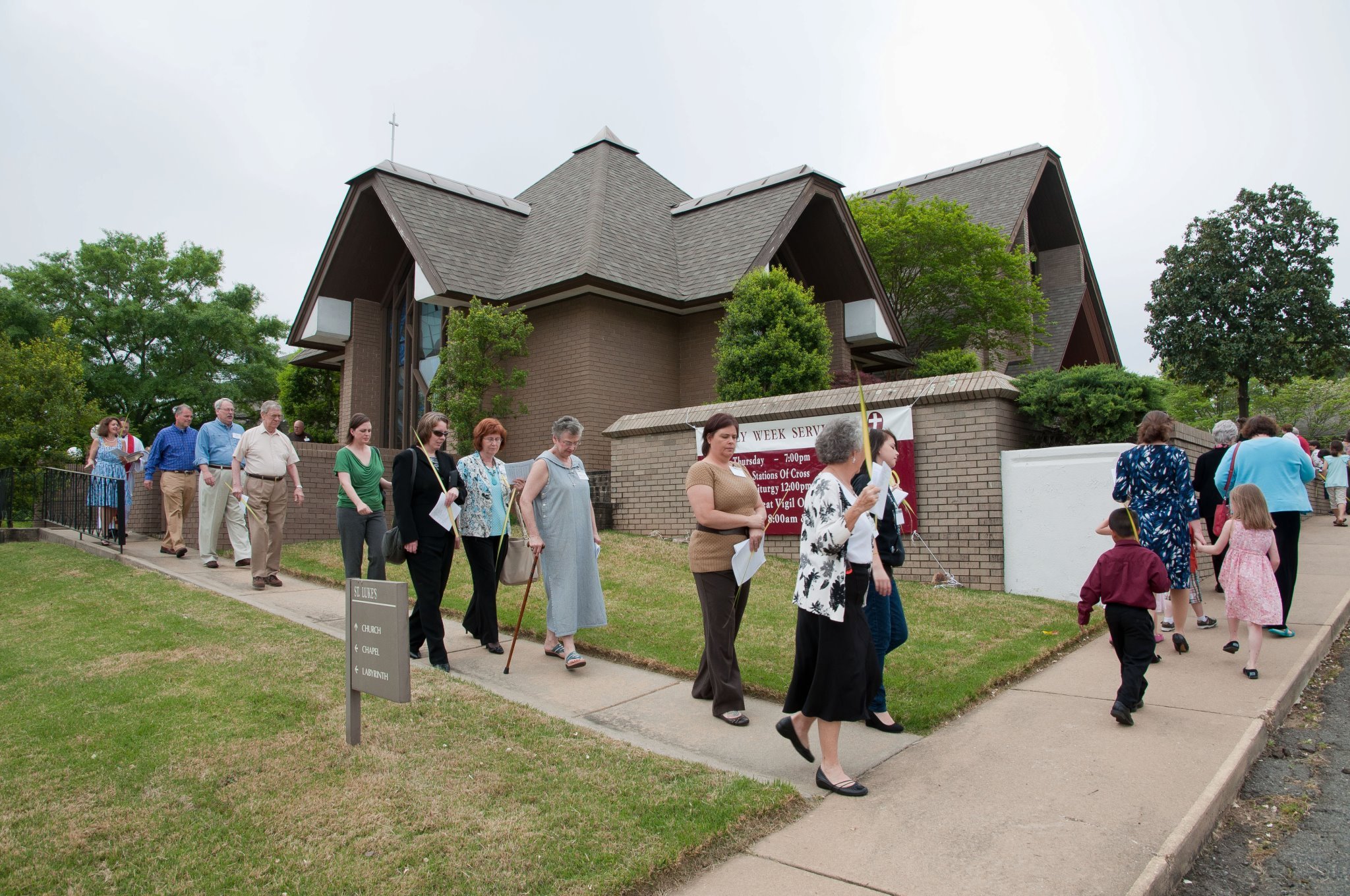Re-living the Passion
“I saw the spot Our Lady met thee carrying thy cross. She swooned and fell. I saw where thou didst wash the dusty feet of those who, when the soldiers came to haul thee off to death, took to their well-washed heels.
With a candle in my hand, I climbed the hill on which they nailed thee to a tree, thy tender flesh so rent and torn it was more full of wounds than ever was a dovehouse full of holes. In a round-shaped church of stone where knights kept vigil, I saw thy Holy Sepulchre itself, the very shelf they set thy body on.”—Frederick Buechner in Godric.
Saint Mark’s Little Rock
We are approaching one of the holiest times of the Christian year, appropriately named Holy Week. In preparing for this time, our tradition suggests the sacrament of the reconciliation of a penitent. So today, I share the rough draft of my confession of the ups and downs of my relationship with God, looking through the lens of the Stations of the Cross.
Today, on Palm Sunday, we walk, and we read the Passion Gospel in Luke; on Good Friday, we will hear the Passion Gospel from John.
St. Luke’s North Little Rock
I imagine myself as one of the many players in this extraordinary drama in all the gospel stories. Come with me and see if you also have a part to play. I have been Judas and betrayed Jesus for politics and money. Yet, at the same time, I have also had the privilege for over twenty-two years preparing Christ’s supper. Jesus has washed my feet.
I have sung hymns with him on the way to the mountaintops. I have publicly declared Jesus as my God in front of large groups of people. I have prayed with Christ and fallen asleep, literally or by staying unconscious to the present moment. I have figuratively cut off ears defending him in my zeal.
St. Mary’s Cathedral Memphis
I have been Nicodemus coming to him secretly at night and speaking out for him in ways that would keep me safe. I have given false witness against him by making my plan his plan. I have been Peter and denied my God more than three times. I have spat on him and mocked him with my actions.
I have been Pilate’s wife, receiving dreams telling me God is among us. I have been Pilate and washed my hands of situations when I should have spoken out for what I knew in my heart was wrong.
I have been Barabbas, the freed criminal, and did not have to face the consequences of my sins. I have been privileged to wipe the face of God present in so many others in pain. I have perhaps been Simon of Cyrene and carried another’s cross for brief periods of time.
I have been among the women who followed Jesus from Galilee and looked helplessly at his crucifixion from a distance. I have been the thief on the cross, crying out for God’s mercy in my distress. I have been the other thief on the cross, still trying to tell God what God should do to relieve my pain.
I have been the centurion at Jesus’ death, finally recognizing God in the lives of so many only after they have died. I have been Joseph of Arimathea and found a resting place for Jesus. I have been one of the spice-bearing women at the empty tomb, still looking for God. I have been Mary Magdalene in the garden, searching for God and not recognizing him.
This is an invitation to walk this Holy Week journey again together. I hear there is a surprise ending.
We will never forget the Holy Weeks of the last several years. This week, we will again have an opportunity to walk with God and many others as we have never done before. We pray for those injured in Arkansas, especially in the tornado now and the Holy Week of two years ago.
Joanna. joannaseibert.com https://www.joannaseibert.com/








